Filter by
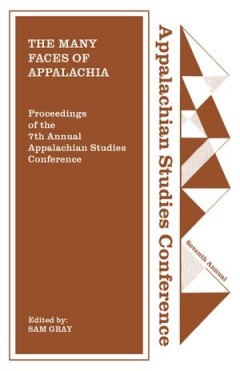
The Many Faces of Appalachia
This volume of the Proceedings of the 7th Annual Appalachian Studies Conference, held in 1985 at Unicoi State Park in Helen, Georgia, offers a look at diversity and Appalachian identity.
- Edition
- -
- ISBN/ISSN
- 9781469636863
- Collation
- -
- Series Title
- -
- Call Number
- 306.4 GRA m
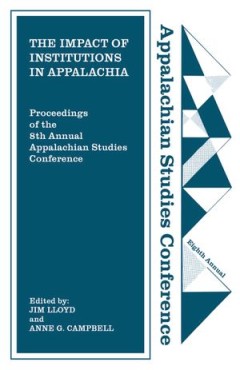
The Impact of Institutions in Appalachia
This volume of the Proceedings of the 8th Annual Appalachian Studies Conference, held in 1986 in Berea, Kentucky, offers a sampling of papers presented at the conference. Paper topics include religion; government and technology; capitalism and coal; regional photographers; sports and play in Southern Appalachia; education; cultural and diversity issues; and history and politics.
- Edition
- -
- ISBN/ISSN
- 9781469636894
- Collation
- -
- Series Title
- -
- Call Number
- 306.4 CAM i
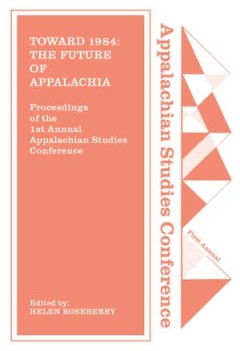
The Future of Appalachia
Though titled the Proceedings of the 1st Annual Appalachian Studies Conference, this volume contains the speeches and papers of the Southern Appalachian Regional Conference held May 13-16, 1974 at the Center for Continuing Education at Appalachian State University. Governor James E. Holshouser, Jr. of North Carolina; John B. Howard, American Petroleum Institute; and Cratis Williams, Acting Vice…
- Edition
- -
- ISBN/ISSN
- 9781469636764
- Collation
- -
- Series Title
- -
- Call Number
- 306.4
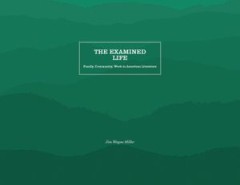
The Examined Life: Family, Community, Work in American Literature
Concerned with the 50% dropout rate for public high school students in the Southern Highlands, Jim Wayne Miller published this book in 1989 to ensure that young people had access to published works and other text that examine the themes of familiy, community, and work. Miller intended to provide public school teachers with the tools to engage students and stimulate meaningful conversations. Mil…
- Edition
- -
- ISBN/ISSN
- 9781469642383
- Collation
- -
- Series Title
- -
- Call Number
- 306.4 MIL e

Paul Green's Wordbook: An Alphabet of Reminiscence
Paul Green’s Wordbook: An Alphabet of Reminiscence, the culmination of more than sixty years of observing and collecting superstitions, customs, cures, riddles, games, stories, songs, and beliefs, was published in 1990. A personal collection of folk traditions, Paul Green thought that these common idioms served to showcase the heritage of mankind. With roots in eastern North Carolina, Green t…
- Edition
- -
- ISBN/ISSN
- 9781469638386
- Collation
- -
- Series Title
- -
- Call Number
- 306.4 GRE p
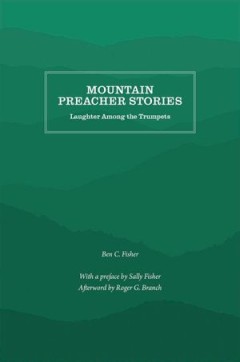
Mountain Preacher Stories: Laughter Among the Trumpets
Over a period of forty years, Ben Fisher collected stories illustrating the humor of the Southern Highlander. English, Scotch, Welsh, and Irish immigrants to the Appalachian region of North Carolina brought with them a rugged individualism and a sense of humor and dignity which have been characteristic of the sturdy yeoman farmer. Most mountain preachers and many of the old time mountaineers ha…
- Edition
- -
- ISBN/ISSN
- 9781469636641
- Collation
- -
- Series Title
- -
- Call Number
- 306.4 FIS m
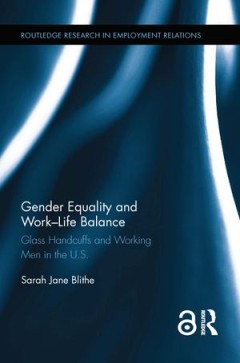
Gender Equality and Work-Life Balance : Glass Handcuffs and Working Men in th…
Pressure to achieve work-life "balance" has recently become a significant part of the cultural fabric of working life in United States. A very few privileged employees tout their ability to find balance between their careers and the rest of their lives, but most employees face considerable organizational and economic constraints which hamper their ability to maintain a reasonable ""balance"" be…
- Edition
- -
- ISBN/ISSN
- 9781138856776
- Collation
- -
- Series Title
- -
- Call Number
- -
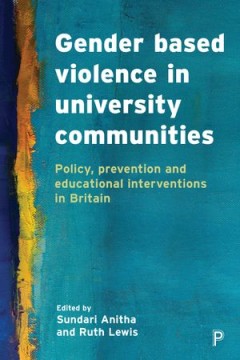
Gender Based Violence in University Communities : Policy, Prevention and Educ…
Until recently, higher education in the UK has largely failed to recognise gender-based violence (GBV) on campus, but following the UK government task force set up in 2015, universities are becoming more aware of the issue. And recent cases in the media about the sexualised abuse of power in institutions such as universities, Parliament and Hollywood highlight the prevalence and damaging impact…
- Edition
- -
- ISBN/ISSN
- 9781447336570
- Collation
- -
- Series Title
- -
- Call Number
- -
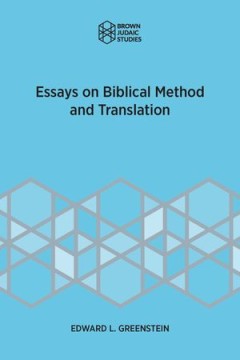
Essays on Biblical Method and Translation
This collection of essays deals with two interwoven themes. The first is a critical reflection on the often theoretical underpinnings biblical studies. The second engage theoretical reflections on translating the Bible. Together they show the need to bring theory and practice of biblical scholarship into closer relationship with each other.
- Edition
- -
- ISBN/ISSN
- 9781951498252
- Collation
- -
- Series Title
- -
- Call Number
- -
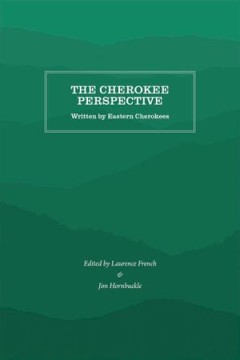
The Cherokee Perspective: Written by Eastern Cherokees
In 1973, Cherokee students at the Qualla Boundary started a student organization with the intention of improving the educational prospects among Native Americans attending non-Indian colleges and universities. Under the direction of Laurence French and Charles Jim Hornbuckle, the students interviewed Cherokee elders and received help from the American Indian Historical Society in order to gain …
- Edition
- -
- ISBN/ISSN
- 9781469638515
- Collation
- -
- Series Title
- -
- Call Number
- 302 FRE c
 Computer Science, Information & General Works
Computer Science, Information & General Works  Philosophy & Psychology
Philosophy & Psychology  Religion
Religion  Social Sciences
Social Sciences  Language
Language  Pure Science
Pure Science  Applied Sciences
Applied Sciences  Art & Recreation
Art & Recreation  Literature
Literature  History & Geography
History & Geography